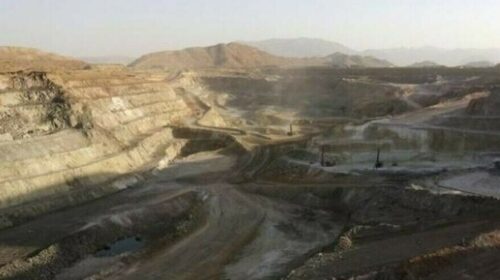The long-awaited project of connecting the Thar coal deposit by railway to the Pakistan Railway network is set to soon receive financing. PC-I of the project has reportedly been prepared and is expected to be approved soon”.
The total project cost of Rs 58.240 billion would be supported on an equal cost sharing basis through the Public Sector Development Programme and the Annual Development Plan.
Background information
Prime Minister Shehbaz Sharif had instructed on October 5th that the Thar Coal Mines be linked to the country’s railway network by March 2023. During a conference presided over by the prime minister, it was determined that the federal and Sindh governments would work together to complete the project of connecting Thar Coal Mines to the rail network.
During the conference he further stated that the connection of Thar Coal Mines to the railway network, local coal would be used in power plants instead of imported coal. This would save $2 billion per year from the power plants that were previously using imported coal.
On March 8, 2019, Special Assistant to the Prime Minister on Power Sector of the previous government convened a meeting of all stakeholders to finalise the modalities for Thar Coal Mines Rail Connectivity Project.
As a result, Pakistan Railways Freight Transport Company (PRFTC) conducted a bankable feasibility study for the Thar Coal Mines Rail connectivity with the National Railways Network from July 2019 to March 2020 on the advice of the Ministry of Railways following rapprochement by Engro Energy Limited through a joint venture of consultants.
The goal of the feasibility study was to examine the overall potential for extending rail links strategically and to make suggestions for project implementation of the most acceptable development option in terms of track alignment, technical standards, financials, and organisation.
The final version of this feasibility study was submitted in May 2020.
It is undeniable that development projects of this nature would be extremely beneficial in the long run. Given the long expected life of the Thar coal mine, development projects around it would yield benefits in the development of labour skills, employment and would facilitate cost effective transportation of Thar coal around the country.
Who will execute the project ?
The company assigned the role of developing this project is the Pakistan Railway Freight Transportation Company (PRFTC)”. The primary objective of this company as the name suggests is to handle the “movement of freight, specially coal by rail from port area at Karachi to up-country”.
The company is granted immense power in terms of planning, designing, operating and managing the operations of freight transportation. The company also has complete authority to procure, own, control and maintain locomotives and rolling stock for the purpose of transporting coal.
PRFTC has further authority to develop as well as maintain its own terminals, maintenance depots, yards, sidings and other ancillary facilities. The government has granted these powers to the company to ensure efficient transportation of freight.
Why is a railway needed?
Rail transportation is critical for any economy as it allows for the shipment of raw commodities over great distances. Apart from coal, railways can facilitate the flow of passengers and other types of freight deeper into Sindh.
Rail has the capacity of no other land transportation option, as train wagons can carry up to 100 tons of freight, more than three times that of a truck. Another essential feature is economies of scale, which means that fixed costs per unit would decrease as volume increased.
Railways are also globally accredited for expediting the industrialization process, as the introduction of rail transportation coincided with an industrial take-off in various countries. It also boosted economic development and population growth.
Currently, internationally imported coal from South Africa, Indonesia, and other nations is being used to meet the needs of Pakistan’s industrial units. Thar coal can easily offset this for not just foreign exchange savings and indigenized fuel mix, but also energy security, local development, community upbringing, infrastructure growth, and equity returns for the government, in addition to paid royalties.
Project details
A transportation system’s fundamental features include universality and simplicity of access. Transportation systems must be designed and arranged for the efficient, convenient, and speedy movement of huge volumes of commodities.
According to the “final feasibility report” for the new train link, four initial options were identified following a complete reconnaissance survey on the ground and information gathered through satellite images and drone studies.
Following a cost-benefit analysis, the route option connecting the mining area with New Chhor in District Umerkot through Bitra and Chachro emerged as the finalised plan for this railway line.
Based upon the feasibility study,this approved routing of the new track is particularly advantageous in that no resettlement or canal irrigated land will be met all along the track.
Additionally this railway alignment provides optimum coverage of all Thar Coal Mine Blocks and far-flung population areas in Tharparkar district while avoiding any existing infrastructural relocations, adding to the value.
The proposed route is roughly 105 kilometres long and connects the Coal Mine area to the Pakistan Railways network near New Chhor station.







